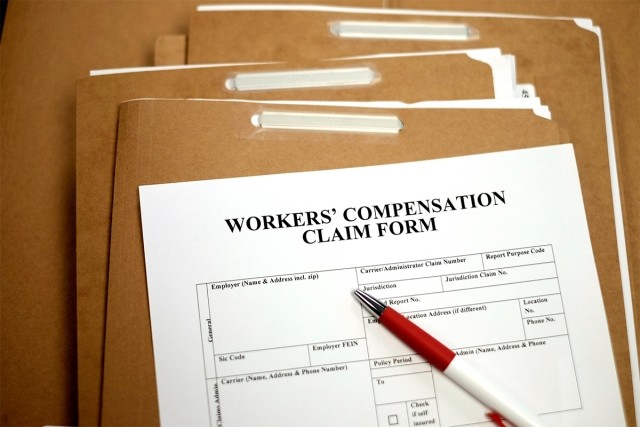Blog
Employment Practices Liability: Preparing for COVID-19 Employment Claims
This blog post can also be found on our Coronavirus Resource Center.
In the wake of COVID-19, employers were forced to make rushed business decisions that included widespread furloughs and layoffs, remote working arrangements, and daily health testing for their staff. The pandemic created an instant upheaval in employment law as employers attempted to act within rapidly changing legal limitations, which incidentally will impact their Employment Practice Liability (EPL) exposure.

Anticipate an Onslaught of Claim Filings
In less than 75 days, over 180 new employment laws have been drafted due to COVID-19. Some of these laws are currently in force while some are still pending, creating uncertainty for employers of all sizes. Equal Employment Opportunity Commissions (EEOC) across the country are seeing a record number of discrimination filings as they waive waiting periods and right-to-sue protocols.
Currently, most courts are closed and statute of limitations suspended, but upon reopening we should be prepared to see an onslaught of new cases and claim filings. Employers should anticipate a wave of employment-related claims and take proactive measures now in order to mitigate their company's potential exposure. Understanding your EPL insurance coverage today will help protect your company against the sweeping changes that are about to occur.
Expected Claims Types
With the aforementioned evolving legislation, unprecedented public directives, and an increasingly active plaintiff bar, we anticipate a broad range of claim types. History has shown that EPL claims tend to increase during a recession or economic downturn. 2008 saw the highest frequency of age discrimination claims over the past 20 years and while many of these more-frequent discrimination claims are expected, the new employment laws will likely bring about a fresh line of litigation trends and allegations and employers may be unaware of their compliance obligations with this flury of new legislation. Let's examine some of the legislation likely to impact employers. We'll then go over what you can do now to mitigate your EPL risk.
Regulatory Issues
FFCRA
The Families First Coronavirus Response Act (FFCRA) requires employers to provide paid sick leave to employees who have a medical diagnosis, are quarantined, or are caring for a family member affected by COVID-19. The Act generally applies to companies with fewer than 500 employees, requiring them to pay between two-thirds to 100% of their pay for up to 10 weeks of leave. An employer may incur risk due to the following restriction:
Employers may not discharge, discipline, or otherwise discriminate against any employee who takes paid sick leave under the FFCRA and files a complaint or institutes a proceeding under or related to the FFCRA.
The Department of Labor (DOL) also states that they "will observe a temporary period of non-enforcement for the first 30 days after the Act takes effect, so long as the employer has acted reasonably and in good faith to comply with the Act." However, since this is a continually evolving issue, we can expect to see complex FFCRA, FMLA, and state law leave cases arise.
WARN and Mini-WARN Acts
The Federal WARN Acts require employers of large firms to file a 60 day notice in the event of an employment loss, plant closing, or mass layoff, with each event having its own definition of layoff size and impact. In addition, employers must comply with states that have mini-WARN Acts, most with lower thresholds than the Federal WARN Act.
The Federal WARN Act includes an exception for unforeseeable business circumstances but remains untested by the DOL. However, this exception may not be included in a state's mini-WARN act, which would have required a business to file a notice to the state during COVID-19 creating an additional layer of administration as well as additional exposure to the company. Being such, employers who experienced significant layoffs across a broad geography may require legal counsel to navigate this evolving area.
Given the current national unemployment rate stands at 14.7%, and is ultimately expected to rise to above 15%, the highest on record, we can expect layoff and furlough confusion to continue.
COBRA
Because of layoffs, many employees lost their employer-sponsored health insurance and may or may not have been offered COBRA. This transition, along with updated COBRA provisions, has created confusion for employers, employees, and third-party COBRA providers. For updates on compliance, the Woodruff Sawyer Employee Benefits Team issued a compliance alert that outlines new rules, including an option that allows employees until 60 days after the national emergency ends to elect COBRA.
Other Employment-Related Torts
In the wake of furloughs and layoffs, retaliation, wrongful termination, gender, age, and racial discrimination claims are on the rise. Are employers choosing this opportunity to "clean house" of older or more expensive workers? Are employees being harassed online while working remotely? Are Asian employees being discriminated against by references to a "Chinese Virus?" These are just a few of the types of claims that are being submitted, so employers must remain cognizant of their actions, as well monitor their remaining employees, and take these claims seriously.
ADA claims associated with COVID-19 screening are also on the rise. Some employers are testing employees daily for coronavirus symptoms or asking for personal medical information that would previously have previously violated HIPAA and privacy laws. To help employers determine what they can and cannot do in the workplace, the EEOC has a website with FAQs that address many common questions regarding ADA, discrimination, return-to-work, and other issues that can be found here.
Reduce Your Risk Now with Employment Practice Liability (EPL) Insurance
Employment Practices Liability (EPL) Insurance provides protection in the event of an allegation that an employee's legal rights have been violated. Wrongful termination, discrimination, and breach of employment contract are just a few of the violations that an EPL policy covers. In the midst of the COVID-19 confusion and the pending flood of claims, employers should understand their EPL protection now to mitigate potential risk. Here's what you can do now to prepare.
Have employment policies in place.
Your first step is to ensure you have a well-crafted, up-to-date employment handbook inclusive of policies and procedures that are regularly communicated to all employees. Ensuring that these policies are up-to-date with the changing employment legislation will be critical, as is taking action in accordance with both Federal and state law across whatever jurisdiction your company finds itself.
Understand how potential claims will be managed.
Within the defense and settlement clause of your well crafted EPL policy, you will find whether the policy is "Choice of Counsel" or "Duty to Defend." This will indicate if the insurance carrier will control the defense and the settlement (Duty to Defend) or if you will have your choice of legal counsel to defend and manage the claim as you see appropriate (choice of Counsel). These differences can result in a vastly different outcome for your firm and should align with your priorities. In either instance, you should have a response plan in place and be prepared should a potential claim arise.
Create an EPL claim response plan.
Should an EPL-related claim arise, what will be your company's response plan? If your HR representative receives notice that an EPL complaint has been filed, they should notify the department that handles your employment-related insurance policies immediately and ensure that notice of a claim has been given. Insurance companies consider EPL "claims" to be both lawsuits and complaints filed with the EEOC or similar state agency—all are required to be reported to the insurer.
Next, you should notify your broker partner about the claim so they can help you comply with your EPL policy. Once a claim is filed with your insurance carrier, they will conduct an investigation and notify you of next steps.
What shouldn't you do? Handle it on your own. EPL claims are expensive and time-consuming, not to mention emotionally draining on your staff. Let your broker partner and legal counsel help navigate these waters alongside you. To understand how to make the process as seamless as possible, see our article on effectively handling the EPL process.
Conduct a policy review.
In light of emerging employment laws and a new workplace environment, it is important that your policy reflect recent changes. Has your EPL policy been reviewed recently for adequate limits that reflect the potential liability at both Federal and State levels? Does it include the most updated terms and conditions that reflect your industry and recent employment law changes? Given the rapidly changing environment, your broker partner can help you assess if your policy reflects current conditions and will help keep your balance sheet protected.
In light of the impending flood of employment claims, now is a perfect time to understand your EPL policy and mitigate your risk before any potential claims are filed. Our team can help you reduce your EPL, Directors and Officers (D&O), Errors and Omissions (E&O), and related coverages that protect your business. Contact us with questions or if you would like to learn more about our process around how we are protecting clients.
Table of Contents











